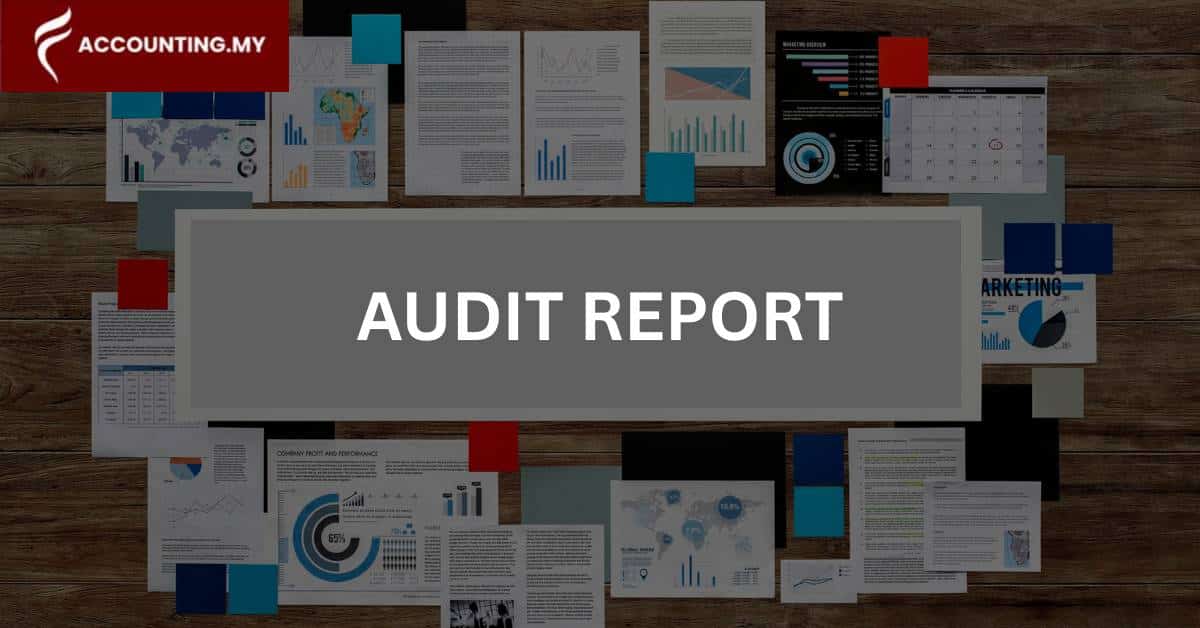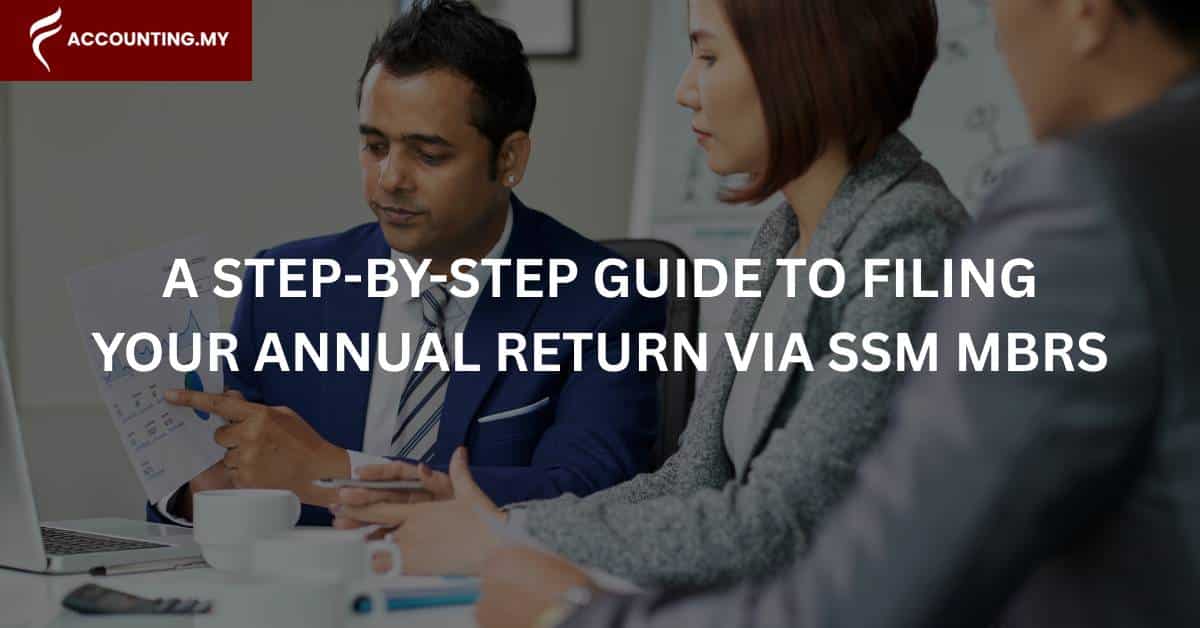Key Takeaways
- An audit report gives an independent opinion on your financials and is often legally required under Malaysia’s Companies Act 2016.
- SMEs must appoint licensed auditors unless they qualify for audit exemptions under specific revenue and asset thresholds.
- There are four audit opinions: Unqualified (clean), qualified, adverse, and disclaimer, each with business and reputational implications.
- Audit reports support bank loans, investor trust, and LHDN compliance, and help prevent fraud or misstatements in financial reporting.
- Audit exemptions are not automatic, they require specific eligibility and proper documentation submitted through your annual filings.
In Malaysia, an audit report isn’t just paperwork, nor is it just for big companies.
It’s a legal requirement for most Sdn Bhd companies under Malaysia’s Companies Act 2016 and unless you’re officially exempt, your business must appoint a licensed audit firm to review and sign off your financials each year.
By the end of this blog, you’ll see why audit reports matter beyond ticking a box. Let’s begin.
What’s Included in a Typical Audit Report?
In Malaysia, the auditor’s report follows the Malaysian-adopted ISAs (ISA 700/705).
It typically includes the Opinion, Basis for Opinion, and standard sections on management’s and the auditor’s responsibilities, plus going concern where applicable.
One of the sections, Key Audit Matters (KAMs) under ISA 701 are required for listed entities and are generally not included for private SMEs.
Important Sections of an Audit Report
Section | What It Covers |
Opinion | States whether the financial statements are accurate and comply with MFRS/MPERS. |
Basis for Opinion | Explains how the auditor reached the conclusion, including standards and evidence. |
Key Audit Matters (KAMs) | Highlights complex or high-risk areas (revenue recognition, inventory control). Not for private SMEs |
Other Legal & Regulatory Info | Notes compliance with Companies Act 2016 or other statutory disclosures. |
Example: If an Oil and Gas Company reports a sudden spike in revenue, the KAM may explain how the auditor verified those numbers, such as through customer invoices or system audits.
Appendices You’ll Often See
- Balance sheet, income statement, and cash flow statement
- Notes to accounts (depreciation policies, liabilities)
- Auditor’s signature, firm registration number, and date
These reports are filed with SSM and often submitted with your annual tax returns to LHDN. Banks, investors, and even suppliers may also request them as part of their own due diligence
What Are the Types of Audit Opinions (And Why Do They Matter)?
There are four types of audit opinions in Malaysia.
Each one carries a different message to banks, LHDN, investors, and even your own shareholders. A clean audit opinion boosts your reputation, while a bad one can raise serious red flags, like really serious red flags.
The 4 Types of Audit Opinions (2025)
Opinion Type | Meaning | Impact |
Unqualified (Clean) | Financials are accurate and compliant with standards. | ✅ Positive signal to banks, investors, and regulators. |
Qualified | Mostly accurate, but has one or two issues ( limited documentation). | ⚠️ May raise questions, but still acceptable in many cases. |
Adverse | Financials are materially misstated or misleading. | ❌ High risk, often rejected by lenders or grant agencies. |
Disclaimer | The auditor couldn’t form an opinion due to lack of evidence. | ❌ Serious red flag, often tied to poor internal records. |
Example: A small manufacturer that switched accountants mid-year might get a qualified opinion if records during the transition were incomplete. While not ideal, it’s not a dealbreaker, especially if clearly explained.
Why It Matters for Your Business
- Banks and investors often screen audit opinions first before reviewing financials.
- LHDN tax audits become more likely if your report includes adverse findings.
- Grant bodies and tenders may reject applicants with disclaimers or missing audit opinions.
- Even vendors and large clients may ask to see clean audit reports before signing contracts.
In other words: your audit opinion doesn’t just stay in a file, it follows your business wherever credibility matters.
Who Qualifies for Audit Exemption in Malaysia?
Some small companies can skip the yearly audit, but only if they meet SSM’s criteria and they are quite strict.
Audit exemption is allowed under the Companies Act 2016 and SSM Practice Directive 10/2024 (effective for financial years beginning 1 Jan 2025).
This isn’t automatic. Your company must meet the size tests for the current year and the two preceding financial years.
Audit Exemption Criteria for Private Companies (from FYs beginning 1 Jan 2025)
To qualify, meet at least 2 of these 3 criteria across the current and immediate past two financial years. Thresholds phase in as follows:
- 2025 (Phase 1): Turnover ≤ RM1,000,000; Assets ≤ RM1,000,000; Employees ≤ 10
- 2026 (Phase 2): Turnover ≤ RM2,000,000; Assets ≤ RM2,000,000; Employees ≤ 20
- 2027 (Phase 3): Turnover ≤ RM3,000,000; Assets ≤ RM3,000,000; Employees ≤ 30
Dormant companies (no accounting transactions in the current and immediate past year) continue to qualify.
Example:
A home-based craft Sdn Bhd with turnover of RM800k, assets of RM700k, and 6 employees in 2025 and similar levels in the prior two years, meets 2 of 3 tests and would qualify for exemption.
What You Still Need to Do (if exempt)
- Lodge unaudited financial statements with SSM (via MBRS) together with the required director’s exemption certificate.
- Keep proper records and be ready to provide them for LHDN (MITRS) requests, bank financing, grants, or tenders.
Remember: exemption from audit does not mean exemption from accountability. Many SMEs still opt for a voluntary audit for credibility with lenders and partners.
Penalty For Not Submitting Audit Report
Under Section 259 of the Companies Act 2016, each officer who fails to lodge the company’s financial statements commits an offence and, upon conviction, is liable to:
- a fine of up to RM50,000; and
- a further fine of up to RM1,000 per day for a continuing offence after conviction.
Consequence | Details |
Fine | Up to RM50,000 upon conviction |
Daily default fine | Additional RM1,000/day for continued non-compliance after conviction |
SSM Enforcement | May result in compound notices, blacklisting, or disqualification of directors |
Impact on Financing | Banks and grant providers may decline applications without an up-to-date audit |
Note: SSM has stepped up enforcement in recent years, especially on dormant companies failing to file accounts or annual returns.
How to Choose the Right Audit Firm for Your Business
Choosing the wrong audit firm can delay filings, trigger penalties, or worse, raise LHDN red flags.
In Malaysia, audit firms must be registered with the Audit Oversight Board (AOB) or licensed under the Companies Commission of Malaysia (SSM).
But beyond the paperwork and licenses, your ideal firm should understand your business type, industry risks, and compliance needs.
What to Look for in an Audit Firm
Factor | What to Consider |
Licensing & Experience | Engage an Approved Company Auditor (MOF approval under s.263 CA 2016) who is also a MIA member. |
Industry Familiarity | Prefer firms that have audited businesses similar to yours ( retail, F&B, tech) |
Turnaround Time | Can they complete audits before your annual return deadline? Ask about busy seasons. |
Support & Responsiveness | Do they guide you during queries, or leave you guessing? |
Fee Transparency | Ensure all costs are disclosed — including out-of-scope work like revised filings |
Should You Go Big or Small?
- Large firms (Crowe, Grant Thornton, Big 4): Ideal if you’re scaling, applying for major grants, or preparing for investment.
- Mid-tier or boutique firms: Great for SMEs looking for affordable, hands-on service, with fewer layers of approval.
- Sole practitioners: Acceptable for simple accounts, but check if they’re overwhelmed during peak deadlines.
If you’re still not sure who to choose, check out our Top 10 local audit firm in Malaysia to compare their audit services and clientele.
How to Prepare for an Audit (Before your Auditor shows up)
A smooth audit starts months before the auditor arrives and poor prep is the #1 reason for delays, disclaimers, or LHDN scrutiny.
We know many SMEs in Malaysia treat the audit process like a once-a-year scramble, but trust us when we say getting your finances in order early can prevent costly mistakes and avoid last-minute stress before your annual return deadline.
It makes your life easier, and it makes ours too.
Audit Prep Checklist
What to Prepare | Why It Matters |
Full set of accounting records | Auditors will request ledgers, trial balance, invoices, bank statements |
Reconciliations (bank, AR, AP, inventory) | Gaps here often lead to audit delays or qualifications |
Properly prepared financial statements | Preferably from a certified accountant or accounting software |
Legal documents (SSM filings, agreements) | To verify shareholding, company status, or asset ownership |
Board resolutions, minutes & declarations | Required to confirm director actions and approvals |
Use accounting software like SQL, AutoCount, or cloud tools to keep your data organised and audit-ready, especially for retail, F&B, or service-based SMEs.
Common Red Flags That Trigger Audit Issues
- Missing or delayed bank reconciliation
- Undocumented large cash transactions
- Unexplained revenue surges or negative margins
- Director loans without clear terms
- Incomplete fixed asset register
“Being audit-ready isn’t just about speed, it’s also about getting it right in case LHDN and Banks start to ask questions.”
Conclusion: Why Audit Reports Still Matter in 2025
It doesn’t matter if you’re applying for a bank loan, responding to LHDN, or bidding for that next government grant, a clean audit report signals you’re serious about governance and transparency.
If your company is scaling, or even if you’re just trying to stay off the radar, investing in the right audit firm pays off, in peace of mind, business confidence, and regulatory protection.
And that’s where we come in.
At Accounting.my, we help Malaysian businesses prepare, file, and comply with audit requirements, without the stress. From statutory audits to audit exemptions and tax planning, our licensed professionals guide you every step of the way.
- Trusted by startups, SMEs, and growing Sdn Bhd companies across Malaysia.
- Transparent pricing, responsive service, and deadline-ready support.
Need professional audit services for 2025? Talk to our audit team now and stay compliant with confidence.
Frequently Asked Questions About Audit Reports in Malaysia
To provide an independent opinion on whether your financial statements are accurate, compliant, and free from material misstatements.
Most Sdn Bhd companies unless exempt under SSM criteria. Even exempt companies may need one for banks or investor use.
Audit fees vary by firm size and business complexity. Expect RM2,000–RM10,000+ annually for SMEs depending on turnover and accounts.
Non-compliance may trigger fines, warnings from SSM, or trouble during tax audits. It may also affect funding or tender eligibility.
Yes, but you still need to file unaudited financial statements and declare exemption in your annual return.
Audited accounts are reviewed by a licensed auditor and carry formal assurance. Unaudited accounts are self-prepared, with no external verification.















